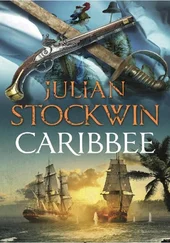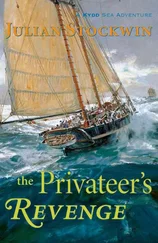Julian Stockwin - Command
Здесь есть возможность читать онлайн «Julian Stockwin - Command» весь текст электронной книги совершенно бесплатно (целиком полную версию без сокращений). В некоторых случаях можно слушать аудио, скачать через торрент в формате fb2 и присутствует краткое содержание. Жанр: Старинная литература, на английском языке. Описание произведения, (предисловие) а так же отзывы посетителей доступны на портале библиотеки ЛибКат.
- Название:Command
- Автор:
- Жанр:
- Год:неизвестен
- ISBN:нет данных
- Рейтинг книги:5 / 5. Голосов: 1
-
Избранное:Добавить в избранное
- Отзывы:
-
Ваша оценка:
- 100
- 1
- 2
- 3
- 4
- 5
Command: краткое содержание, описание и аннотация
Предлагаем к чтению аннотацию, описание, краткое содержание или предисловие (зависит от того, что написал сам автор книги «Command»). Если вы не нашли необходимую информацию о книге — напишите в комментариях, мы постараемся отыскать её.
Command — читать онлайн бесплатно полную книгу (весь текст) целиком
Ниже представлен текст книги, разбитый по страницам. Система сохранения места последней прочитанной страницы, позволяет с удобством читать онлайн бесплатно книгу «Command», без необходимости каждый раз заново искать на чём Вы остановились. Поставьте закладку, и сможете в любой момент перейти на страницу, на которой закончили чтение.
Интервал:
Закладка:
Suffolk left Sydney Cove in a fine north-westerly, the schooner leaning to the wind before rounding Pinchgut Island for the run down to the harbour entrance, careful to leave the ugly boiling of white water that was the Sow and Pigs reef well to starboard.
The first deep-sea swell lifted their deck as they shaped course to pass between the Heads, the open ocean spreading in a vast expanse ahead, the vivid blue of the sea and the vaulting white of the cheerful clouds washing away the memory of the dross and dirt of the land.
Safely out to sea the tiller went down and Suffolk headed southward. She was plain but sturdily crafted, and took the seas on her bow with a willingness that resulted in a lively pitch and roll. Kydd let Boyd conn the vessel; he guessed that the other man was the usual master of Suffolk.
He had last crossed these seas in Totnes Castle but shortly they would reach Bass Strait. Its very existence had been unknown to him then: he had brought his ship south about Van Diemen's Land, through the high seas and gales of the Southern Ocean. Now he was to enter largely uncharted waters; if they were shipwrecked they might lie undiscovered for years—it would be prudent to consult again the notes and charts he had brought.
The tiny cabin was not occupied: Renzi was standing by the foremast looking shoreward. On impulse Kydd came up to him but his light words died before they were spoken: Renzi had shown no sign that he was recognised. Kydd left quietly.
They reached thirty-nine degrees south in a streaming northeasterly and it was time: instead of continuing south past the mass of Van Diemen's Land Suffolk angled south-westerly directly into the strait, heading as fast as she could for a point just half-way along the remote north coast, Port Dalrymple, so recently surveyed by Flinders.
If the French were to be anywhere this was the most likely place. Reputed to be the finest sea sanctuary for five hundred miles, with a capacious river longer and wider by far than the Thames at London, it would make an excellent place for a settlement.
However, a hundred and fifty miles of rock-and-island-strewn sea lay ahead and all that Kydd had was a chart of generalities compounded from those who had hazarded their ships there, and the tracks of the few explorers who had been this way. Anything out of sight of their line of advance would not appear on a chart. Only the most strict vigilance of the lookouts would preserve Suffolk.
The north-easterly, however, veered into the east and freshened; the schooner plunged and bucketed in seas that had turned gun-metal grey and Kydd's anxieties increased. If the winds veered much further towards the south they would be headed, and he had no wish to be tacking about in the darkness of these waters.
Late in the afternoon an irregular stretch of land was sighted: it had to be Van Diemen's Land. Kydd's reckoning placed it close to their goal but caution made him order a seaman forward with a lead line. When soundings were fifteen fathoms he let go anchor and waited out the night.
In the morning it was simply a matter of deciding whether their destination was up coast or down but Kydd quickly spotted the bluff and the sandy beach leading along to a low finger of land that Flinders's notes indicated was the entrance to Port Dalrymple. They passed by slowly offshore and confirmed the broad opening before turning to make their approach.
Baudin's Geographe, or Naturaliste, was probably snugly at anchor inside, her company busily occupied in building a fort, perhaps laying out the settlement ready for the settlers to come. A confrontation would be worse than useless, vastly outnumbered as they would be, and he would be lucky to avoid an international embarrassment.
He was in possession of letters from the governor of the colony of New South Wales indicating that His Majesty considered that the Act of Possession of the First Fleet at Botany Bay in 1788 was binding in the case of Van Diemen's Land, and that he would regard any infringement of sovereignty as an unfriendly act.
It was a thin pretence: the separation of Van Diemen's Land into a distinct land mass invalidated any claim that included it. What Kydd planned was a bluff: he would sail in innocently and display much surprise at the French landing. Had they not heard of the British settlement at the other end of the island in the south? That their claim had been preceded by an act of colonisation some time before? With luck, this would buy time.
With the biggest ensign aboard fluttering at the main the Colonial Armed Schooner Suffolk bore down on the low rocky point, marked "Low Head" on the chart, the entry point for Port Dalrymple. A sweeping curve of sandy beach came into view but Kydd had eyes only for the wicked reefs that Flinders had been so at pains to fix, especially the dreaded Yellow Rock.
The water was visibly shallowing and the dark writhing of bull kelp below the surface was a menacing token of the undersea crags to which it clung; the betraying blackness fringed with white of a half-tide jumble of stones was another reef towards mid-channel but the notes sturdily promised safe passage if they kept to the Low Head side of Yellow Rock.
They passed beyond the low finger of land and a vista of the upper reaches of the river opened up—a remarkable view of a broad channel with deep-sea access, flanked by land so different from New South Wales. Kydd's glass was up instantly, searching for tall masts, sweeping the banks for any sign of habitation, flag poles, huts.
There was nothing, but this was only the start of miles of navigation into the interior at any point of which the French might have decided to make their settlement. Inside Low Head, a shallow but perfectly formed semi-circular beach beckoned and Kydd anchored both bow and stern, then had the boat readied. "Mr Boyd! I'm steppin' ashore t' see what I can. Give me a gun should ye sight anything." He went over to Renzi, who was sombrely watching the shoreline. "Nicholas, should y' desire t' stretch y'r legs . . ."
"Thank you, I do not," Renzi said distantly, and resumed his vigil.
Kydd took hold of his feelings. If the next few hours ended in grief it would be his name attached to the failure, his the blame for the consequences. Someone to share this, even just by sympathetic understanding . . .
"Shove off," he growled. There were two seamen at the oars, another in the bows. The boat stroked inshore until it crunched into pale sand in the centre of the beach. Kydd clambered over the thwarts and dropped over the bows. There was a musket in the boat but he was unarmed: he had no plans to stray far.
Bare dunes fringed the beach, behind them the dark green of vegetation. Leaving the men to stay by the boat he puffed to the top of one dune and looked down on a tangle of gnarled, papery-barked white trees and feathery casuarinas around the still, brown depths of an inland lagoon. There was no indication that man had set foot there before, no road, no track or anything other than the whispery quiet of a land as old as time.
He shivered and turned back to face the broad reaches of the river, and from his higher elevation raised his telescope and carefully quartered the scene. The far bank seemed flat and swampy with the blue of distant hills, and everywhere the dark green of continuous verdure right to the water's edge, so unlike the parched soils and stark landscapes of Port Jackson.
He wandered down and around the lagoon, tramping noisily through the undergrowth as he looked for signs. There might well be black people living near, Kydd reasoned, who could tell him if other Europeans were about. Or be fiercely hostile to any who trespassed on their land.
Nothing. And all around strange eucalypts, harsh grasses with the occasional ghostly pale dead gum tree and the haunting fragrance of oils released from crushed leaves.
Читать дальшеИнтервал:
Закладка:
Похожие книги на «Command»
Представляем Вашему вниманию похожие книги на «Command» списком для выбора. Мы отобрали схожую по названию и смыслу литературу в надежде предоставить читателям больше вариантов отыскать новые, интересные, ещё непрочитанные произведения.
Обсуждение, отзывы о книге «Command» и просто собственные мнения читателей. Оставьте ваши комментарии, напишите, что Вы думаете о произведении, его смысле или главных героях. Укажите что конкретно понравилось, а что нет, и почему Вы так считаете.









